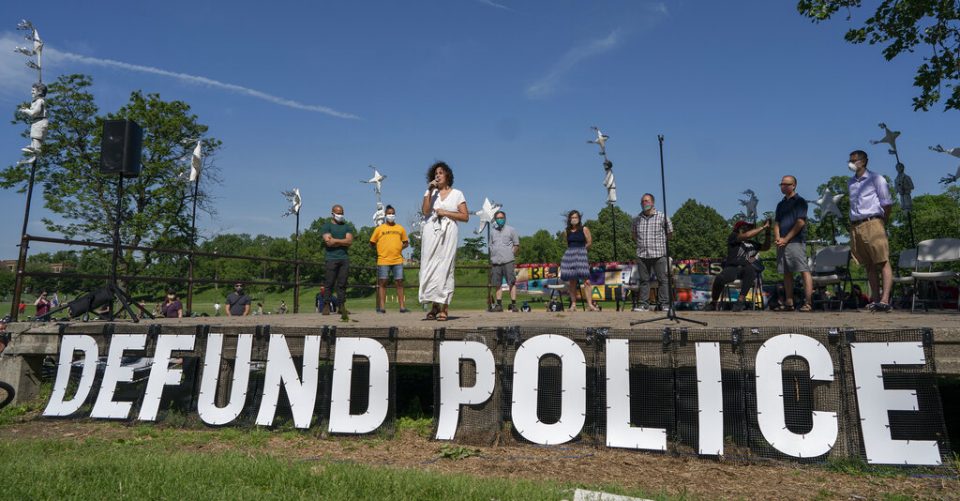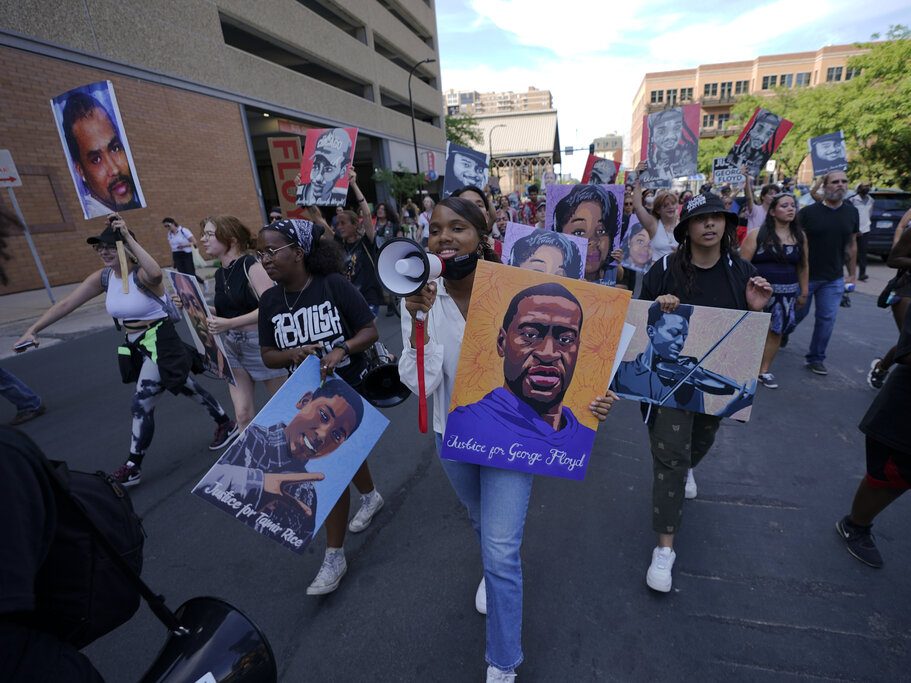
(Jerry Holt/Star Tribune via AP, File)
MINNEAPOLIS (AP) — A judge on Tuesday rejected an attempt to salvage a proposed charter amendment on the future of policing in Minneapolis, ruling just days before early and absentee voting is due to begin in the city where George Floyd died in police custody that any votes on the question won’t count.
Hennepin County District Judge Jamie Anderson said the new language “does not ensure that voters are able to understand the essential purpose of the proposed amendment. It is unreasonable and misleading.” Ballots containing the question are due back from the printer Wednesday. Anderson’s order allows election officials to use the ballots, but prohibits election officials from counting any votes cast on the issue.
But her ruling wasn’t likely to be the final word. An 11th-hour appeal was coming. Minneapolis City Attorney Jim Rowader said his office was “focused on a speedy appellate process to ensure all voters have the opportunity to make known their positions on this critical issue as part of the municipal election this year.”
The Yes 4 Minneapolis campaign, which spearheaded the pro-amendment campaign, petitioned the Minnesota Supreme Court ahead of time to hear an accelerated appeal in case it lost. The group tweeted its intention to keep fighting: “We who seek justice and safety for all, in the city where George Floyd was murdered will not be silenced because a judge, a mayor, a charter commission, the Police Federation, or corporate developer money have attempted to thwart democracy. #LetThePeopleVote.”
Joseph Anthony — an attorney for former council member Don Samuels, his wife and a businessman who sued to block the proposal — said the ruling was a “victory for the voters of Minneapolis” who are entitled to ballot language that clearly explains what the charter amendment would do. He said the judge or the Supreme Court still have the authority to order a delay in the start of voting by a week to 10 days to allow all sides to come up with mutually acceptable language and print new ballots.
The proposal has its roots in the “defund the police” movement, which gained momentum after Floyd’s death last summer sparked protests, civil unrest and a national reckoning on racial justice. It would remove the city charter’s requirement that Minneapolis have a police department with a minimum staffing level and replace it with a new Department of Public Safety that “could have” police “if necessary,” and whose functions and funding levels would be defined later by the mayor and City Council. It does not use the term “defund.” Supporters insist the city would still have police.
The City Council updated the language last week, just hours after Anderson ordered earlier wording off the ballot because it was “vague, ambiguous and incapable of implementation.” The judge held a follow-up hearing Monday.
Anthony said his clients never objected to letting voters decide, but he charged that the City Council and Yes 4 Minneapolis “could never get the language right because everything came back to defunding the police,” a point he accused proponents of glossing over.
The charter amendment and the future of policing in the city have been among the top issues in the municipal election campaign. While most council members supported the measure, Major Jacob Frey tried to keep it off the ballot.

